College of Science, Engineering & Technology
This nano unit has giga ideas
Unisa’s College of Science, Engineering and Technology (CSET) established a strategic research niche, the Nanotechnology and Water Sustainability (NanoWS) research unit that addresses current and emerging issues to tackle planetary environmental challenges, particularly with regard to ensuring water sustainability in South Africa.
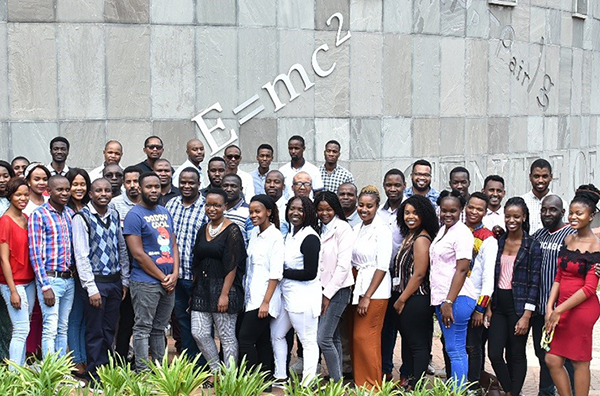
NanoWS PhD students
Founded in September 2014 by the current Executive Dean of CSET, Prof Bhekie Mamba, who was then the director of the unit, along with two other staff members, Prof Titus Msagati and Prof Thabo Nkambule, NanoWS is divided into two focus areas: nanoscience and water sustainability.
The unit is currently directed (on an acting basis) by one of its co-founders, Prof Nkambule, and employs 21 staff members: four are administrative/technical and 17 are academic and all possess PhD qualifications. Partnering with local and international stakeholders in the nanotechnology and water sustainability space, NanoWS has 83 registered postgraduate students in 2020 and 11 postdoctoral fellows.
Its excellence is recognised by the broader scientific community, a fact that has earned it a nomination in this year’s prestigious NSTF-South32 Awards in the NSTF-Water Research Commission (WRC) Award category.
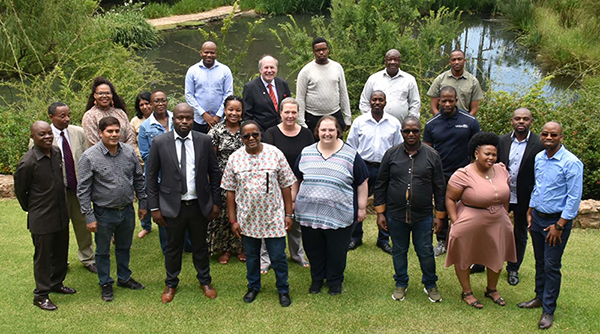
NanoWS staff with Prof Bhekie Mamba (Executive Dean: College of Science, Engineering and Technology) (front centre) with Prof Thabo Nkambule (Acting Director: NanoWS) on his left and Prof Sarah Jane Johnson (Head: Research and Graduate Studies, CSET) on his right.
Enhancing human capacity development
It has also graduated over 30 master’s and PhD students, who are highly marketable even outside South Africa's borders, and has published over 185 research output units since its inception. NanoWS is a wellspring of top-flight research, boasting of state-of-the-art, top-of-the-range infrastructure for training postgraduate students by an excellent dynamic team of academics and scholars par excellence.
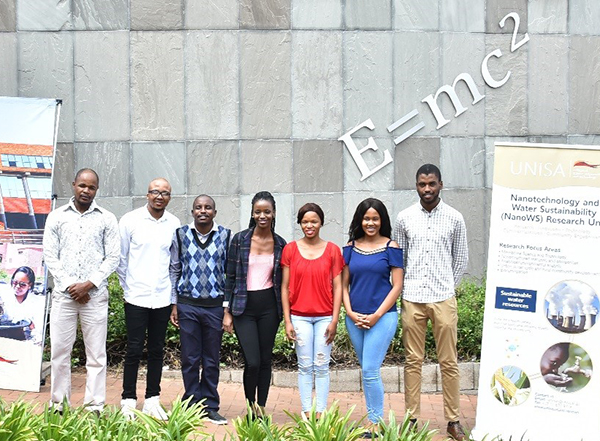
NanoWS master’s students
"Through research on clean technologies and utilisation of renewable energies for a sustainable future, NanoWS has embarked on a drive to enhance human capacity development through training master’s and PhD students on various aspects of the broad research themes," explains Nkambule. He further explained that the core function of the NanoWS laboratories is to address current and emerging issues relating to water quality and water scarcity.
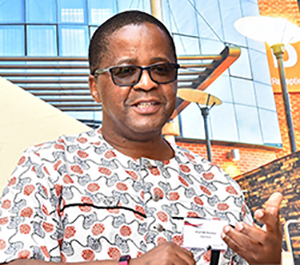
Prof Bhekie Mamba, Executive Dean: College of Science, Engineering and Technology
"It is important to stress that the achievements by the unit are as a result of collective teamwork by all our staff members and dedication from all our structures. Most importantly, all Unisa support offices such as HR, student funding, research office, office of the ED of CSET, VP Research, and PMO have all been pillars which allowed us to get to where we are. The hard work and dedication as evidenced by our students towards the work also forms the baseline of the success of the unit."
Collaborative multi-disciplinary research
Within its two focus areas of research, NanoWS is further divided into five thematic research areas, which include urban water cycle and water treatment technologies (UWC&WTT), nanostructured materials and electrochemical technologies, environmental and analytical research, and (nano)composites. Through their tireless work as supported by Unisa structures, they have generated over 115 million rand in external revenue through external funding to various staff members and 95 million rand as funded by Unisa special projects for a five year period.
The NanoWS experts include Prof Lukas Snyman who has recently been awarded a Rand Water Board Chair: Electrical Engineering. The award was allocated after a rigorous bidding process, in which candidates from top ranked universities in South Africa were considered. His approach
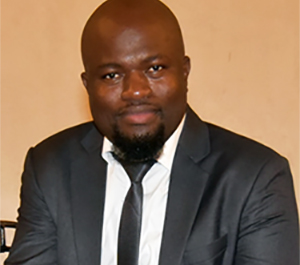
Prof Thabo Nkambule, Acting Director: NanoWS
addresses the immediate needs of the Rand Water Board in the discipline of Electrical Engineering. Snyman sees this as an opportunity to transfer some of his expertise and gained knowledge over the years in a future management environment and team-building action where Unisa knowledge, expertise and university facilities can be made available to make a direct impact on the surrounding infrastructure and communities.
Over the last five years, the unit’s attained research highlights include the advanced treatment of wastewater to protect drinking water sources from contamination and to harvest fresh water, biogas and fertiliser from wastewater; the production of clean, renewable (baseload) power from salinity gradients; and the fabrication of electrocatalytic membranes for the removal of micropollutants in water.
The unit believes that engaging in collaborative multi-disciplinary research will foster the culture of inclusiveness, globalisation and competitiveness, in addition to strengthening social, cultural, scientific and intellectual values for a better community.
* By Nancy Legodi, Acting Journalist, Department of Institutional Advancement
Additional reading
Heeding the President's call to action, Unisa's labs step up to the sanitiser challenge
Publish date: 2020-04-17 00:00:00.0

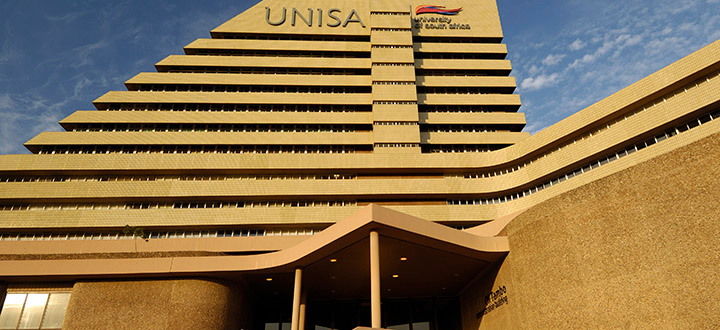 Unisa remains anchored among the waves
Unisa remains anchored among the waves
 Inhlanyelo Hub explores sustainable tourism initiatives in Marico Biosphere Reserve
Inhlanyelo Hub explores sustainable tourism initiatives in Marico Biosphere Reserve
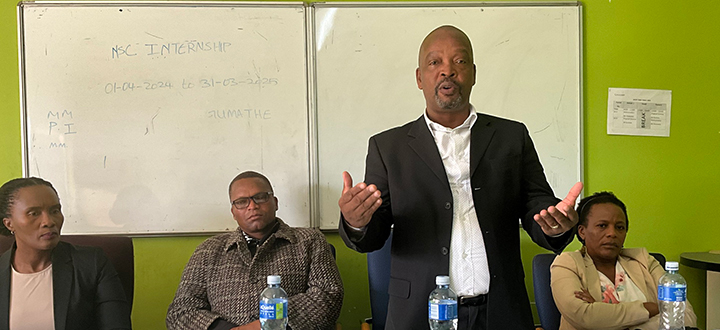 Unisa KZN Region explores extending university services to KwaMpungose community
Unisa KZN Region explores extending university services to KwaMpungose community
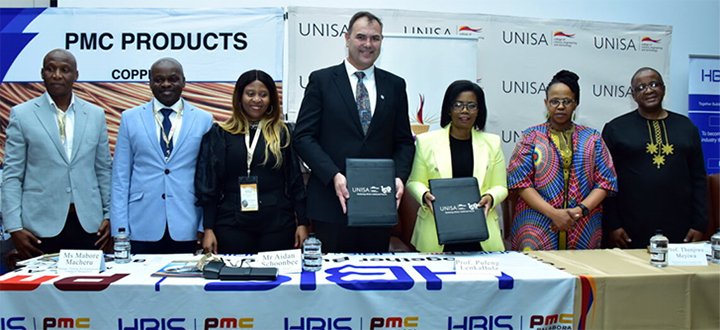 Unisa's catalytic niche areas provide industry-focused mining innovations
Unisa's catalytic niche areas provide industry-focused mining innovations